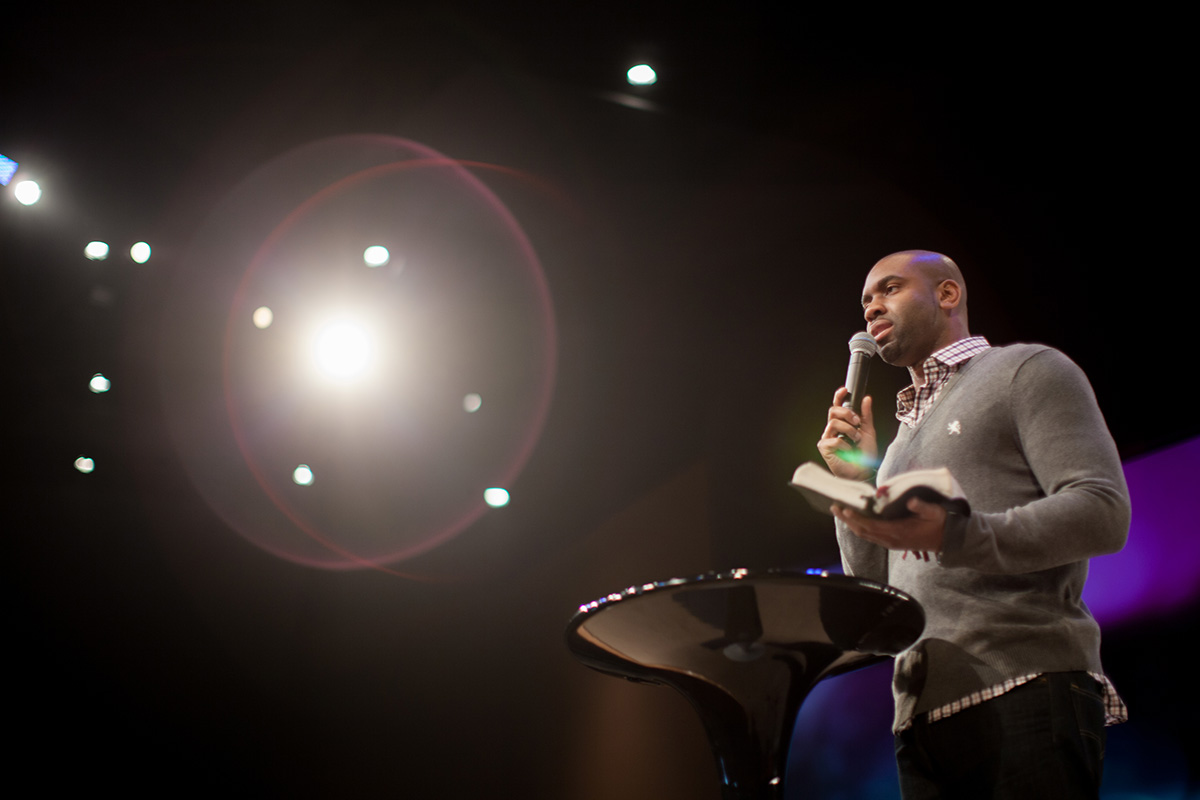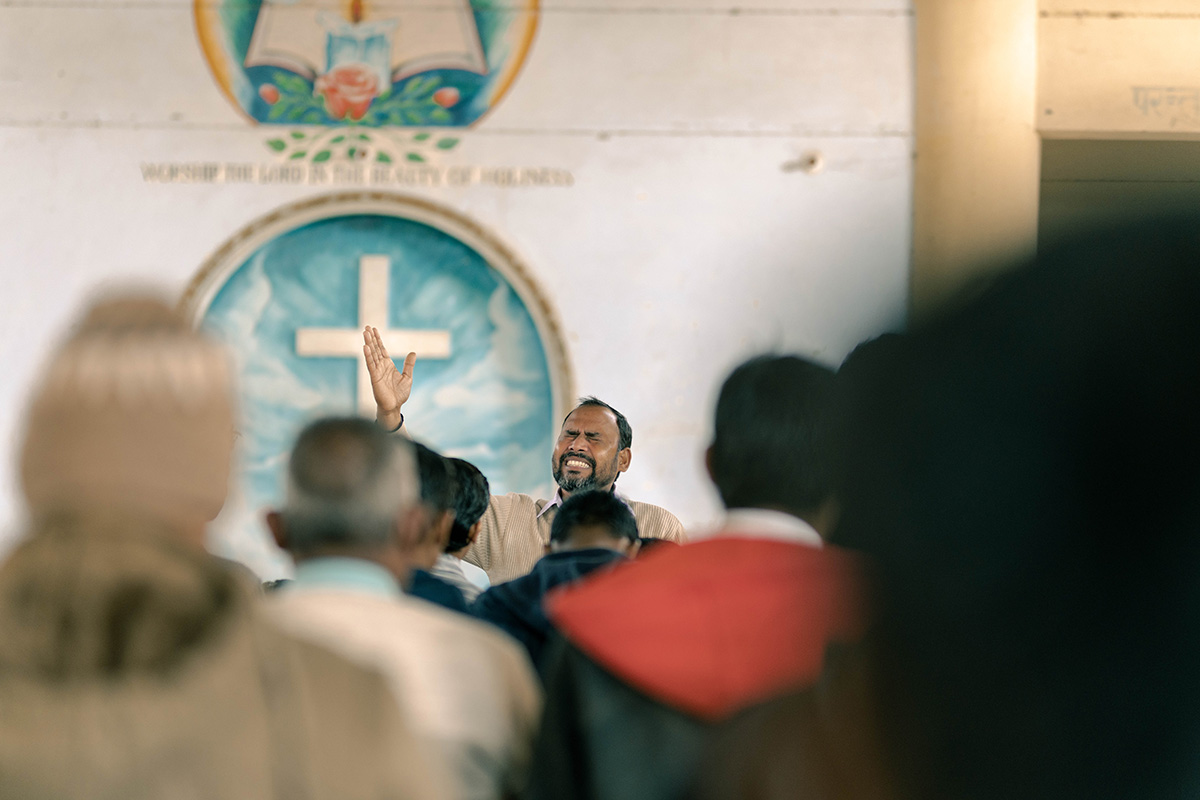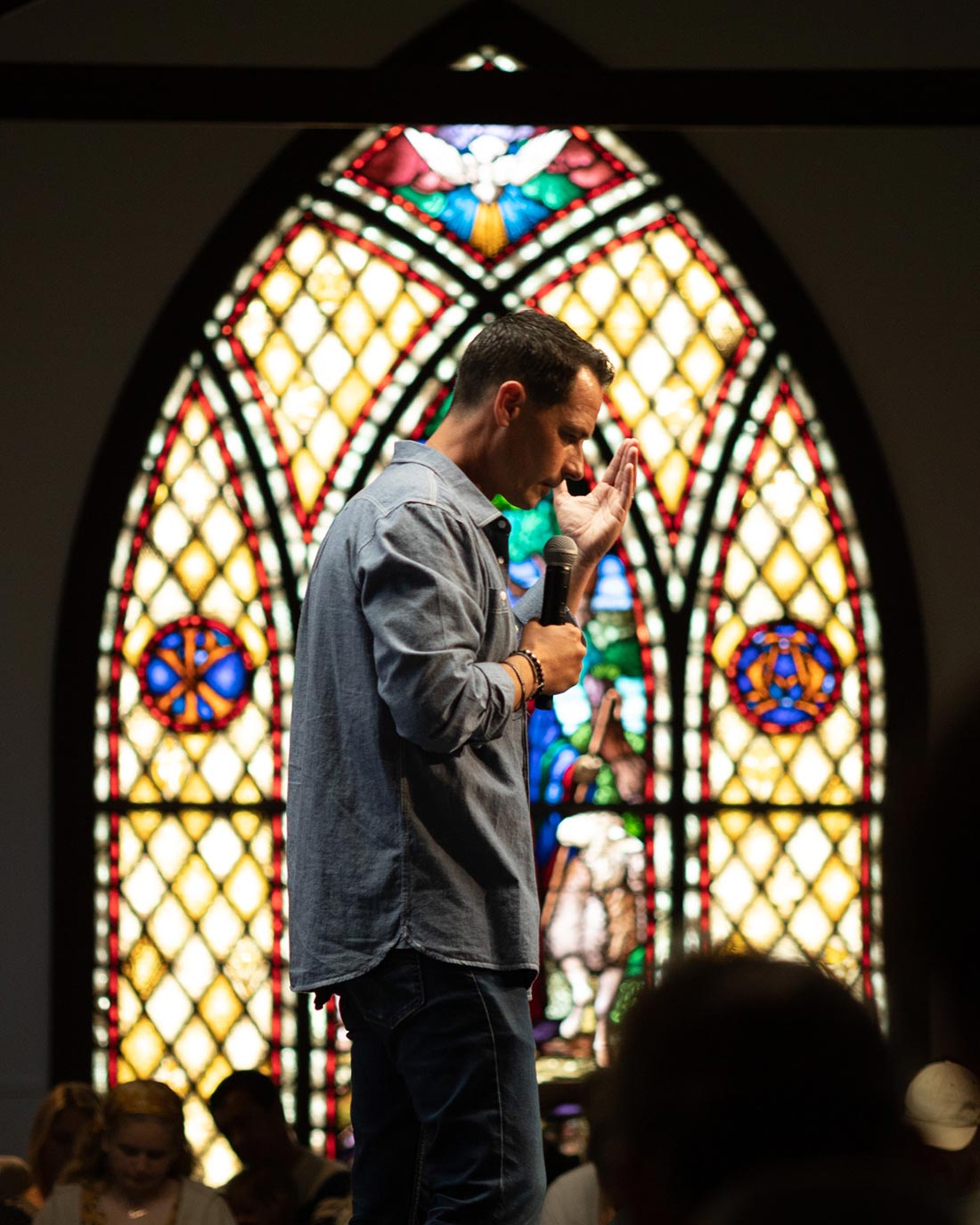Testimony from marginal living
Storytellers in the brush arbors kept alive the heritage of African slaves throughout their years of oppression in a strange new land. In the same manner, African American preachers reinterpreted stories of the Hebrew slavery and liberation in light of their own people's needs and experiences. What therapy does hearing and giving testimony offer to oppressed communities?
Preaching as testimony
Preaching is a witness intended to evoke other forms of witness. Preaching is the activity of the whole church and not of the preacher alone. What challenge does this present to the preacher? What grace does it offer? How is the testimony of a preacher distinct from the other "testifiers"? How do preacher and people work together to practice testimony? How does the call and response pattern common in African American worship support the preacher in giving testimony? If this is not the pattern in your own community, by what other means do the people support the preacher in giving testimony?
Testimony in song
To know the real life and history of a people, study the testimony it makes in its songs. What tuneful testimony did Miriam make in Exodus 15:21? What testimony does the hymn "Amazing Grace" make? When have you been better able to sing your testimony than speak it? How do songs help people make sense of their lives? What songs point disenfranchised people to a time when their needs will be met?
Testimony beyond words
Sojourner Truth, Martin Luther King Jr., and Mohandas Gandhi all testified with their bodies, their actions, their lives. The New Testament word for witness is "martyr." How does the witness of martyrs — famous or not — inspire you to greater witness? When have you seen a quiet act of compassion speak powerfully of God's presence? In what ways do the church's rituals offer nonverbal testimony to the story of Jesus' life and death and continuing power in our lives?
Telling the truth
Christian testimony has two dimensions: telling the truth to God about our lives, and bearing witness to others about God's redemptive activity in the world. How are these two dimensions of testimony related to each other? How do groups like Alcoholic Anonymous draw upon the healing power of both dimensions of truth-telling?
In Central America, Archbishop Oscar Romero urged truth-telling that risked lives. What risks are inherent in giving unpopular testimony? How can people support one another in bearing witness and speaking the truth? How can we draw strength and inspiration from "the great cloud of witnesses" who have gone before us (Hebrews 12:1)?















